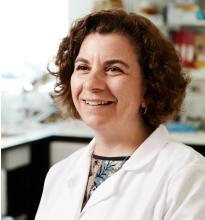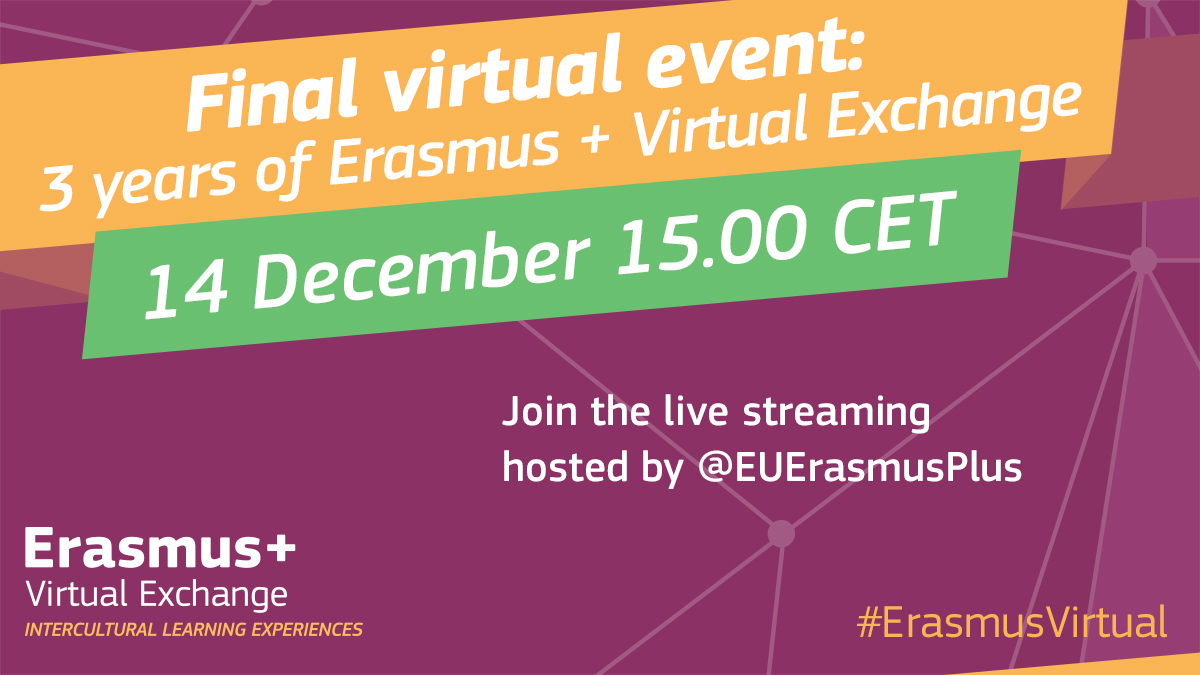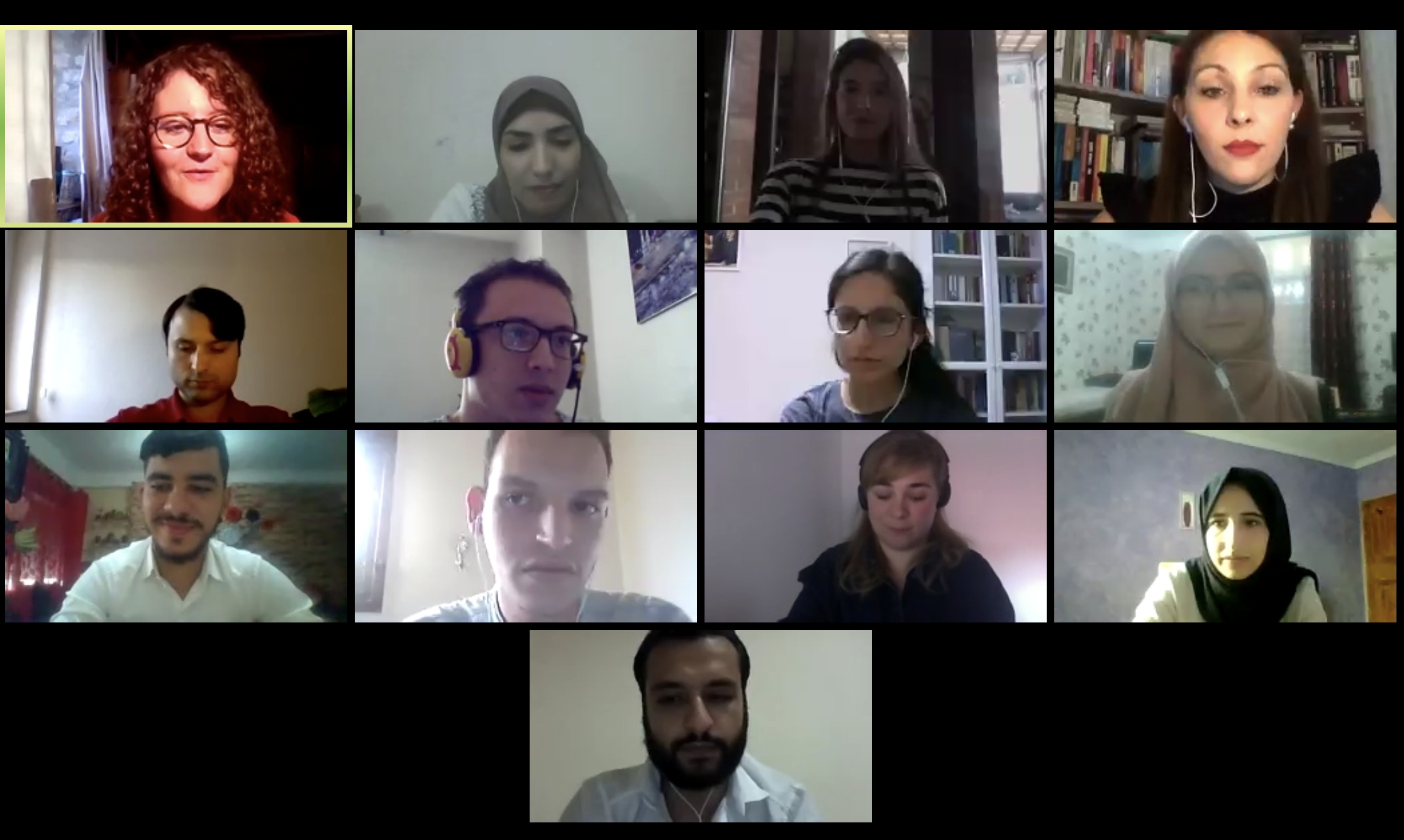Mona, Lebanon: “I want to support my community, help solve the problems my country is facing and teach children to grow up in love and peace”

Mona is a 22 year-old Lebanese translation and interpreting graduate, who dreams of going to Italy to continue her studies. Italian participant Aurora is 26 and graduated in migration and diaspora studies with Arabic. Several months on and the two are still in contact and remain firm friends. “She was the one on the Virtual Exchange activity I connected with the most”, smiles Aurora, and Mona concurs, “And we speak Arabic together”, continues Mona. “We speak regularly.”
Aurora lives in the southern Italian region known as ‘terra dei fuochi’ (land of fires) due to the fact that organised crime in the area - near Naples - is blamed for the frequent fires that plague the territory. Aurora is involved in volunteering on environmental initiatives with a local organisation called “ARS”, set up in memory of 3 young men who died at the hands of these criminals for daring to stand up to them – “ARS was set up in memory of Alberto, Rosario and Salvatore”, explains Aurora, “who were well-known round here.” She also puts here studies to good use and volunteers with migrants from the Middle East in Naples.
Mona’s Beirut-based NGO called “Arc en Ciel” also focuses on cultural and social issues that affect young people. Both organisations found the Erasmus+ Virtual Exchange opportunity and came together to discuss and exchange information surrounding the issue of recycling rubbish and other environmental issues in their respective countries. The idea was also to find solutions and create campaigns to raise awareness.
“I enjoy volunteering’, explains Aurora, ‘as often these important environment issues lead me to other projects around social issues. These are things I worry about and I live in a very volatile area in Italy for these sorts of things so it is important for me to be active and try to make a difference.”
Mona agrees and explains that the problems in Lebanon are quite similar. Not in terms of how organised crime controls the rubbish collection, but in the fact that the government does not consider rubbish and how to deal with it a priority, hence there is no recycling in Lebanon. Instead waste is piled up endlessly in the streets and in natural areas of beauty including parks, forests and beaches.
“I want to do my best for my community and help solve the problems we are facing and teach the children to grow up in love and peace,” says Mona.
Their Virtual Exchange collaboration was fraught with problems as throughout, Lebanon was experiencing constant social unrest and then the COVID-19 pandemic hit. This impacted enormously on the participants to go out into their communities and act on their ideas. But still they came to the online facilitated dialogue sessions that took place every few weeks, to talk to each other and exchange ideas. Both Mona and Aurora agree that they were able to take something away from the experience regardless of the problems they encountered.
“I met many other people living abroad and made friends, so I loved the experience and we felt we were not alone. We realised that others have problems too and it helped us to take a look at problems with a new perspective,” explains Mona.
“The Virtual Exchange was a very positive experience”, echoes Aurora, “and due to the trouble around us, I felt grateful we had this 90 minutes of connection together, away from all our other problems. We had this moment of reflection and we learned so much about Lebanon and the protests and the environment. Our last session was a little sad and our mood was down, but it didn’t matter as we had a gathering and a moment of much needed reflection.”
Mona says that at least she was able to pass the awareness of these issues to her neighbours and family and that she learned many things. She highly recommends the experience to her peers to do this experience.
The participants were unable to fulfil much of what they planned in their mini-projects, especially the idea of going into schools to teach the children the importance of disposing of their rubbish correctly, recycling and reusing cloth bags instead of plastic. However, both hope that things will calm down in the coming months so they can pursue their ideas and act upon them within their communities. Mona will continue to work on her project of creating awareness for children about the environment and to encourage them away from plastic bags towards reusable bags to help save the planet and reduce quantity or garbage and pollution.



